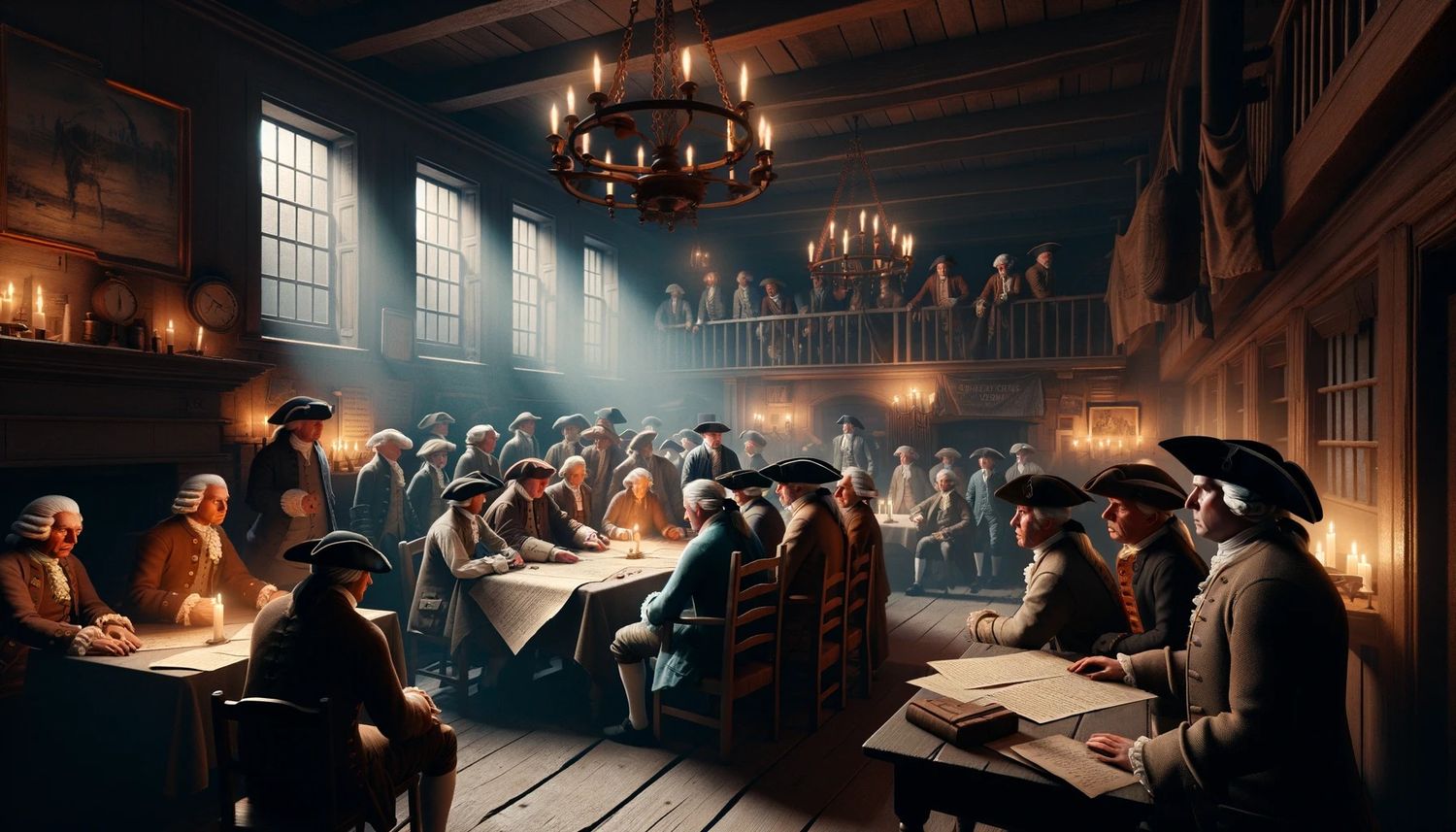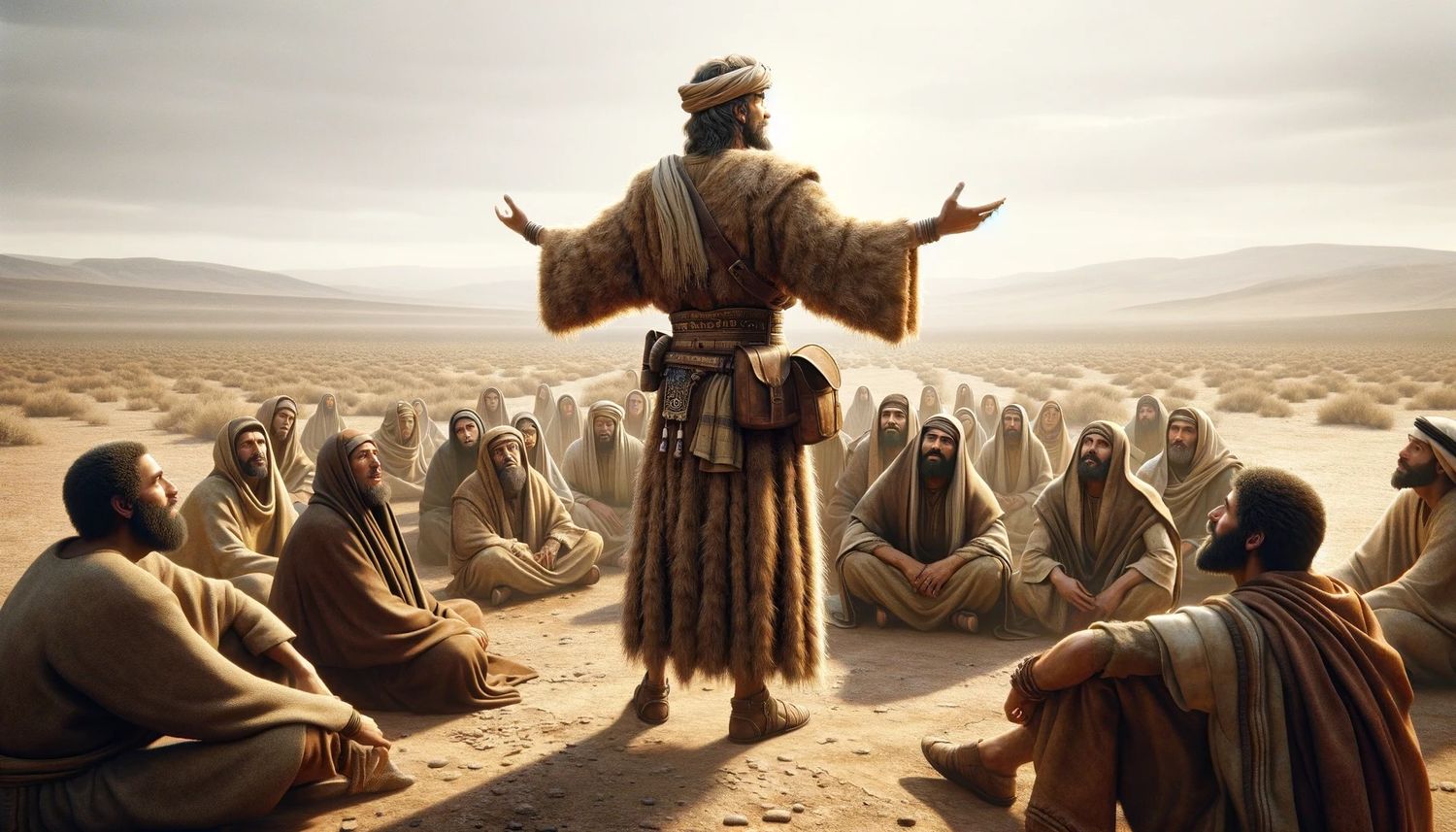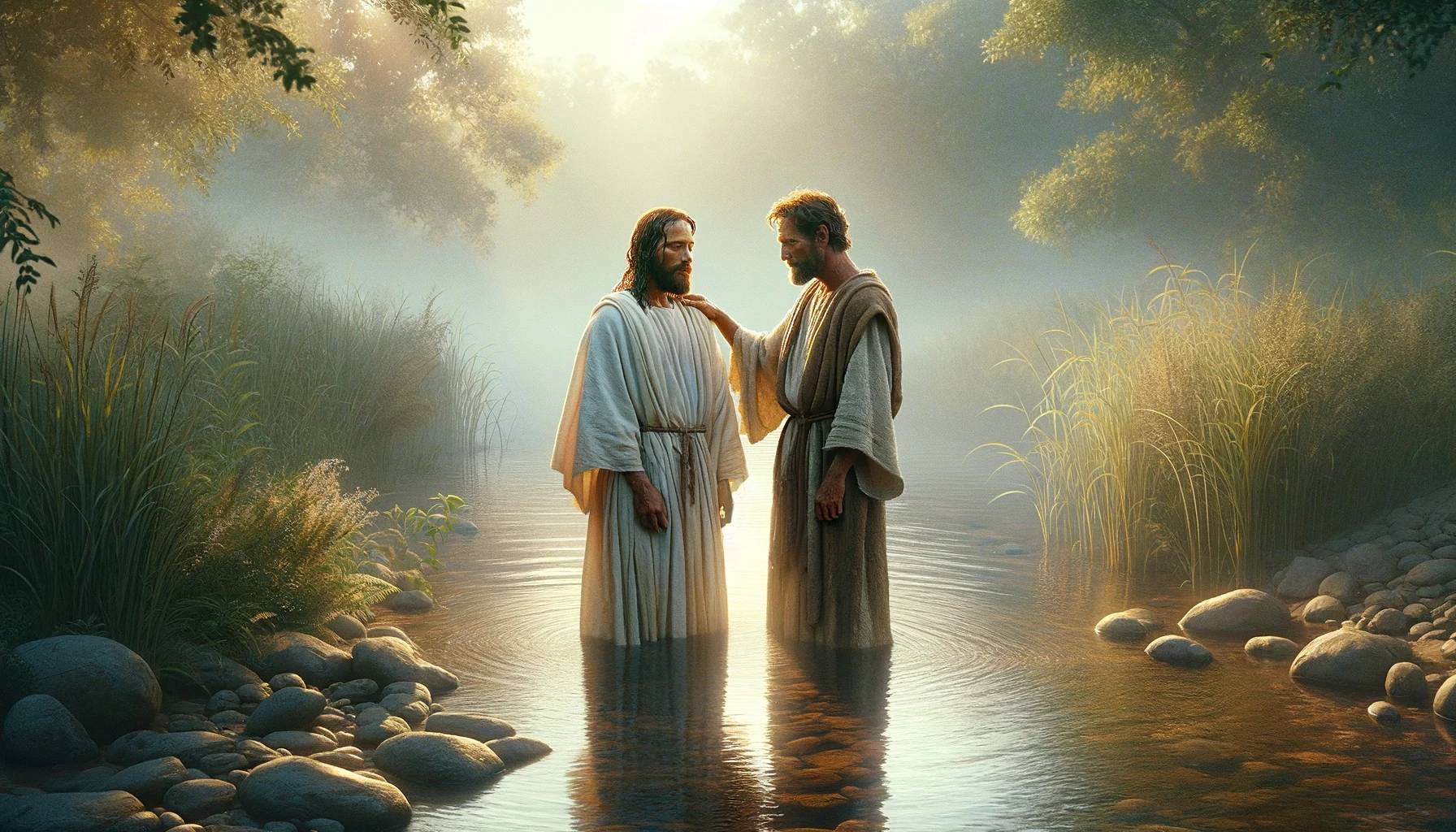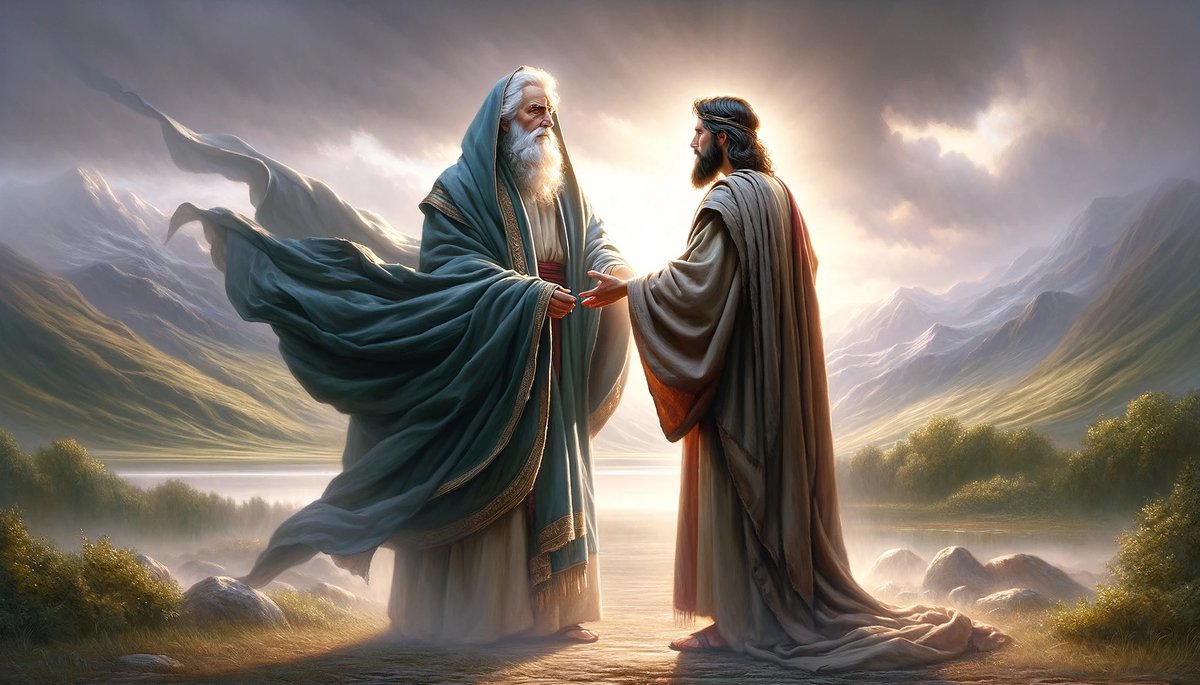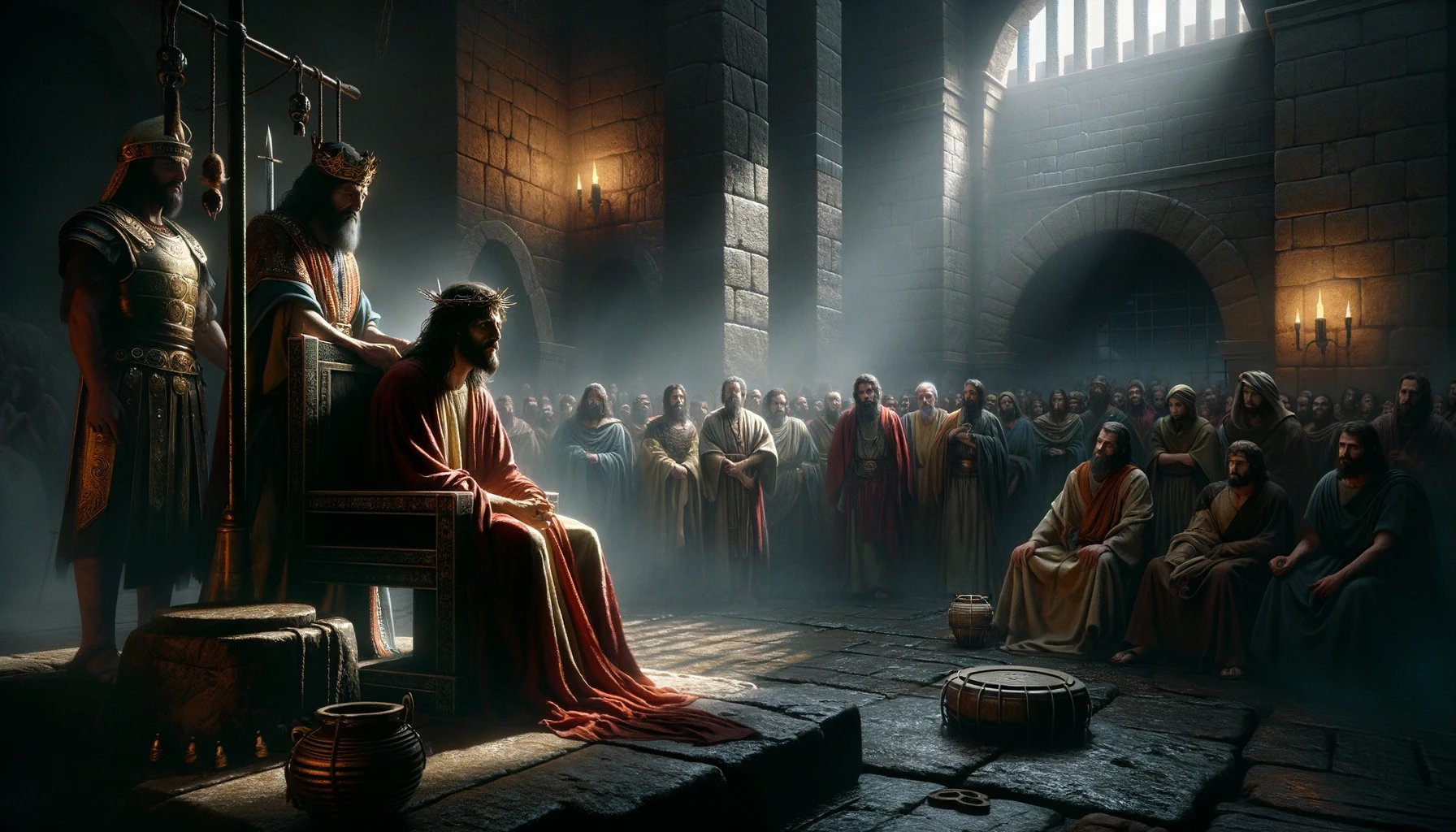Home>Theology and Spirituality>Why Did The Baptist War Happen
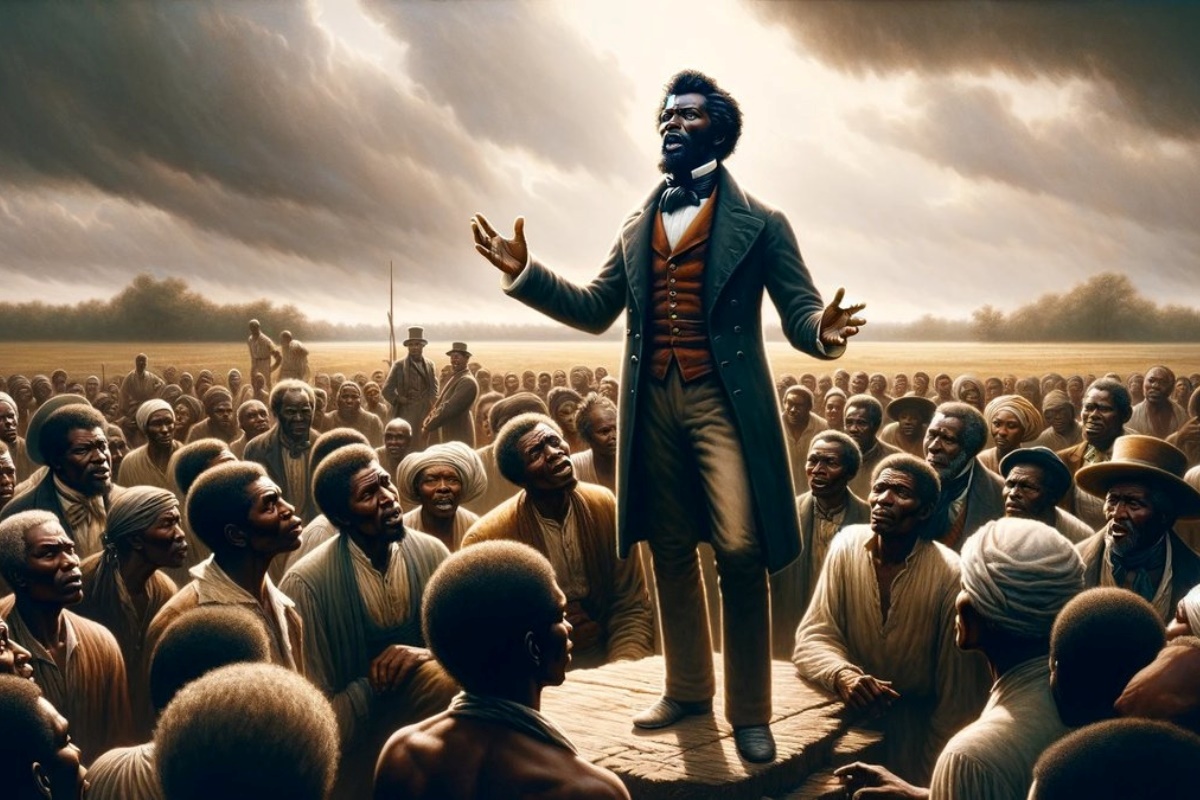

Theology and Spirituality
Why Did The Baptist War Happen
Published: February 24, 2024
Peter Smith, Editorial Director at Christian.net, combines deep insights into faith, politics, and culture to lead content creation that resonates widely. Awarded for his contributions to religious discourse, he previously headed a major organization for religious communicators, enhancing dialogue on faith's societal impacts.
Discover the causes and impact of the Baptist War, a pivotal event in theology and spirituality. Explore the historical context and significance of this important uprising.
(Many of the links in this article redirect to a specific reviewed product. Your purchase of these products through affiliate links helps to generate commission for Christian.net, at no extra cost. Learn more)
Table of Contents
Introduction
The Baptist War, also known as the Christmas Rebellion, was a pivotal event in the history of Jamaica and the broader struggle for freedom from slavery. This historic uprising, which took place in 1831-1832, was a defining moment that reverberated across the Caribbean and beyond. The Baptist War was not only a significant chapter in the fight against slavery but also a testament to the resilience and unwavering spirit of those who sought emancipation from the shackles of oppression.
The Baptist War was not an isolated event; rather, it was deeply rooted in the complex socio-political landscape of the time. The seeds of discontent had been sown for years, as enslaved individuals endured unimaginable hardships and sought avenues for liberation. The pervasive injustice of slavery, coupled with the unyielding determination of the oppressed, set the stage for a dramatic confrontation that would alter the course of history.
As we delve into the intricate tapestry of the Baptist War, it is essential to understand the multifaceted factors that precipitated this watershed moment. From the role of slavery in shaping the dynamics of power and control to the indomitable leadership of figures such as Sam Sharpe, the Baptist War encapsulates a confluence of forces that culminated in a resounding call for freedom and equality.
The repercussions of the Baptist War extended far beyond its immediate aftermath, leaving an indelible mark on the collective consciousness of the Jamaican people and igniting a fervent pursuit of justice and emancipation. The legacy of this uprising continues to resonate, serving as a poignant reminder of the enduring human spirit and the relentless quest for dignity and autonomy.
In the subsequent sections, we will embark on a compelling journey through the origins, dynamics, and enduring impact of the Baptist War, unraveling the intricate threads that weave together this pivotal moment in history. Through this exploration, we will gain profound insights into the complexities of the Baptist War and its profound significance in the annals of liberation movements.
Read more: What Was The Baptist War
The Origins of the Baptist War
The origins of the Baptist War can be traced back to the oppressive system of slavery that permeated the social and economic fabric of Jamaica in the early 19th century. The institution of slavery, characterized by brutal exploitation and dehumanization, cast a pervasive shadow over the lives of the enslaved population, engendering profound discontent and a fervent desire for liberation.
Amidst the harsh realities of bondage, a burgeoning sense of resistance and defiance took root among the enslaved individuals. The Baptist War was not a sudden eruption of dissent; rather, it was the culmination of years of simmering discontent and a quest for freedom that had been smoldering beneath the surface.
The catalyst for the Baptist War can be attributed to a confluence of factors, including the relentless toil endured by the enslaved labor force, the pervasive injustices perpetuated by the plantation system, and the fervent aspirations for autonomy and dignity. The oppressive conditions under which the enslaved individuals lived and toiled fueled a growing sentiment of discontent and a fervent yearning for emancipation.
Furthermore, the emergence of religious fervor and the spread of Baptist teachings among the enslaved population played a pivotal role in galvanizing a sense of collective identity and resilience. The Baptist faith, with its emphasis on spiritual equality and the intrinsic worth of every individual, provided a potent platform for articulating aspirations for freedom and justice.
The Baptist War was not merely a spontaneous outburst of rebellion; rather, it was a testament to the enduring spirit of resilience and the unwavering pursuit of liberty in the face of insurmountable odds. The origins of this historic uprising lay in the profound yearning for emancipation, the quest for dignity, and the unyielding determination to challenge the entrenched forces of oppression.
As we delve deeper into the origins of the Baptist War, it becomes evident that this watershed moment was a culmination of the intersecting forces of oppression, resistance, and the fervent pursuit of freedom. The seeds of dissent had been sown in the fertile soil of injustice, and the Baptist War emerged as a poignant manifestation of the indomitable human spirit striving for liberation.
The origins of the Baptist War serve as a poignant reminder of the enduring human quest for autonomy and dignity, transcending the confines of bondage and oppression. This historic uprising stands as a testament to the resilience and unwavering spirit of those who dared to defy the shackles of slavery and embark on a courageous journey towards freedom and equality.
The Role of Slavery in the Baptist War
The institution of slavery played a pivotal role in shaping the dynamics that culminated in the Baptist War. The pervasive system of slavery, characterized by its dehumanizing practices and relentless exploitation, cast a long and harrowing shadow over the lives of the enslaved individuals in Jamaica. The profound impact of slavery reverberated across every facet of society, engendering deep-seated grievances and a fervent yearning for liberation.
Slavery, as an entrenched system of oppression, served as the crucible within which the Baptist War found its roots. The brutal exploitation of enslaved labor, coupled with the systemic denial of fundamental human rights, created a cauldron of discontent that simmered beneath the surface, fueling a potent undercurrent of resistance and defiance. The enslaved individuals, subjected to unspeakable hardships and indignities, yearned for an escape from the suffocating grip of bondage and sought avenues to assert their intrinsic humanity.
Moreover, the economic foundations of Jamaica were intricately intertwined with the institution of slavery, as the plantation system relied heavily on the coerced labor of the enslaved population. The relentless pursuit of profit and power by the ruling elite perpetuated a cycle of exploitation and cruelty, further exacerbating the plight of the enslaved individuals. The insidious nexus between slavery and economic interests entrenched the oppressive system, rendering the quest for emancipation an arduous and perilous endeavor.
Furthermore, the social and cultural fabric of Jamaica bore the indelible imprints of slavery, perpetuating a hierarchical order that subjugated the enslaved population to the whims of their oppressors. The pervasive dehumanization of the enslaved individuals, coupled with the systemic denial of their agency and autonomy, underscored the profound impact of slavery on the dynamics that precipitated the Baptist War.
The Baptist War, therefore, must be viewed within the crucible of slavery, as the oppressive system permeated every facet of Jamaican society, shaping the contours of power, resistance, and liberation. The role of slavery in fomenting discontent, nurturing aspirations for freedom, and galvanizing a collective yearning for autonomy cannot be overstated. The Baptist War emerged as a resounding repudiation of the shackles of slavery, a fervent outcry for justice and emancipation that reverberated across the annals of history.
In essence, the role of slavery in the Baptist War serves as a poignant testament to the enduring impact of oppression and the unwavering resilience of those who dared to challenge the entrenched forces of bondage. It underscores the profound significance of the Baptist War as a pivotal moment in the relentless struggle for freedom and equality, transcending the confines of slavery to illuminate the indomitable human spirit in its fervent pursuit of liberation.
The Leadership of Sam Sharpe
The leadership of Sam Sharpe stands as a beacon of unwavering courage and visionary resilience amidst the tumultuous backdrop of the Baptist War. Born into slavery in Jamaica, Sharpe emerged as a towering figure whose indomitable spirit and steadfast commitment to justice galvanized the enslaved population in their fervent quest for emancipation.
Sharpe's leadership was characterized by a rare blend of strategic acumen, unwavering conviction, and an innate understanding of the power of collective action. As a literate and deeply spiritual individual, he harnessed the teachings of the Baptist faith to instill a sense of unity and purpose among the enslaved community, igniting a fervent spirit of resistance against the oppressive forces of slavery.
At the core of Sharpe's leadership lay his unwavering commitment to non-violent resistance, a profound testament to his moral clarity and visionary foresight. Sharpe recognized the transformative power of peaceful protest and strategic non-cooperation, leveraging these principles to orchestrate a mass strike that reverberated across the plantations of Jamaica. His strategic brilliance and unwavering adherence to non-violence set a powerful precedent for resistance movements, inspiring generations to come.
Moreover, Sharpe's leadership transcended the confines of his immediate circumstances, embodying a visionary outlook that transcended the shackles of bondage. His ability to articulate a compelling vision of freedom and equality resonated deeply with the enslaved population, fostering a sense of collective identity and purpose that transcended the pervasive dehumanization perpetuated by slavery.
Sharpe's leadership during the Baptist War epitomized the transformative potential of visionary resilience and unwavering commitment to justice. His enduring legacy serves as a testament to the profound impact of visionary leadership in igniting movements for social change and liberation.
In essence, the leadership of Sam Sharpe stands as a testament to the transformative power of visionary resilience and unwavering commitment to justice. His indomitable spirit and strategic acumen galvanized a movement that reverberated across the annals of history, leaving an indelible mark on the relentless pursuit of freedom and equality.
The Outcomes of the Baptist War
The aftermath of the Baptist War reverberated across Jamaica and beyond, leaving an indelible imprint on the socio-political landscape and reshaping the contours of the struggle for emancipation. The repercussions of this historic uprising transcended its immediate temporal confines, ushering in a new era of reckoning and transformation.
The immediate aftermath of the Baptist War was marked by a profound sense of upheaval and introspection. The resounding call for justice and emancipation, articulated through the courageous actions of the enslaved population, reverberated across the plantations and sent shockwaves through the corridors of power. The ruling elite, confronted with the unyielding spirit of resistance, grappled with the seismic implications of the uprising, setting into motion a chain of events that would irrevocably alter the trajectory of Jamaican history.
The outcomes of the Baptist War were multifaceted, encompassing both the immediate repercussions and the enduring legacy that permeated the collective consciousness of the Jamaican people. The aftermath of the uprising precipitated a heightened awareness of the entrenched injustices perpetuated by the system of slavery, galvanizing a fervent call for reform and emancipation. The pervasive impact of the Baptist War served as a catalyst for introspection and a fervent reevaluation of the socio-political dynamics that underpinned the oppressive system.
Furthermore, the Baptist War engendered a profound sense of solidarity and collective identity among the enslaved population, fostering a spirit of resilience and unity that transcended the confines of bondage. The uprising served as a poignant testament to the unwavering determination of the oppressed, igniting a fervent pursuit of justice and autonomy that reverberated across the annals of history.
The outcomes of the Baptist War were not confined to the immediate aftermath; rather, they permeated the fabric of Jamaican society, leaving an enduring legacy of resilience and unwavering commitment to justice. The uprising served as a clarion call for freedom, inspiring future generations to continue the relentless pursuit of emancipation and equality.
In essence, the outcomes of the Baptist War transcended the confines of a singular event, permeating the collective consciousness and igniting a fervent pursuit of justice and liberation. The enduring legacy of the uprising serves as a poignant testament to the transformative power of resilience and the unwavering spirit of those who dared to defy the shackles of oppression.
Read more: Why Does Baptism Happen
Legacy of the Baptist War
The legacy of the Baptist War transcends the confines of a singular event, permeating the collective consciousness and igniting a fervent pursuit of justice and liberation. The uprising, with its resounding call for freedom and equality, left an indelible imprint on the socio-political landscape of Jamaica and reverberated across the annals of history.
The enduring legacy of the Baptist War is encapsulated in the profound impact it had on the relentless struggle for emancipation. The uprising served as a clarion call for freedom, inspiring future generations to continue the unwavering pursuit of justice and autonomy. The indomitable spirit of resilience displayed by the enslaved population during the Baptist War became a guiding light for movements advocating for social change and liberation.
Moreover, the legacy of the Baptist War fostered a heightened awareness of the entrenched injustices perpetuated by the system of slavery, galvanizing a fervent call for reform and emancipation. The uprising precipitated a fervent reevaluation of the socio-political dynamics that underpinned the oppressive system, laying the groundwork for transformative shifts in the pursuit of justice and equality.
The Baptist War also engendered a profound sense of solidarity and collective identity among the enslaved population, fostering a spirit of resilience and unity that transcended the confines of bondage. The courageous actions of those who participated in the uprising served as a testament to the unwavering determination of the oppressed, igniting a fervent pursuit of justice and autonomy that reverberated across generations.
Furthermore, the legacy of the Baptist War permeated the fabric of Jamaican society, leaving an enduring imprint of resilience and unwavering commitment to justice. The uprising became a pivotal chapter in the narrative of liberation movements, inspiring individuals to confront oppression and advocate for the inherent rights of all people.
In essence, the legacy of the Baptist War stands as a poignant testament to the transformative power of resilience and the unwavering spirit of those who dared to defy the shackles of oppression. It continues to inspire and embolden individuals to stand against injustice, fostering a collective determination to uphold the principles of freedom and equality.
